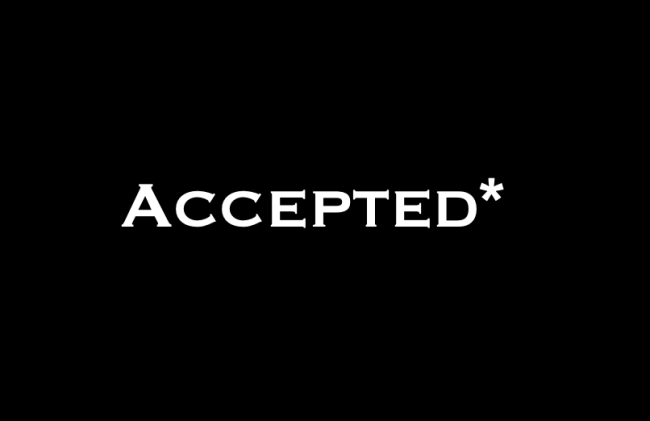You have /5 articles left.
Sign up for a free account or log in.

Inside Higher Ed
Long before Oct. 7, the price for standing up for Palestinian liberation was high. Smearing, harassment and loss of livelihood were ever-present realities. The widely observed prohibition known as the “Palestine exception” had created spaces where Palestine was outside the realm of accepted speech.
Often voicing donor interests and imperatives, senior administrators across college campuses policed this exception through intimidation and disciplinary procedures. These forms of silencing pro-Palestinian speech and thought were distinct from the attacks by conservatives on critical race theory, ethnic studies and Black Studies, but they have all converged over the last five months in the name of a general assault on liberal education.
The genocidal war on Gaza has multiplied the numbers of those speaking out. It was not long before we saw a crackdown that has been compared to the heyday of McCarthyism. Students and faculty have been disciplined, arrested, and suspended; new rules and procedures have curtailed speech and prevented teach-ins; armed police officers are often called in to campus events; administrators have surveilled classroom discussion and syllabi; flyers and messaging with Palestine content have been banned, some campuses have been closed off to outsiders, and presidents of elite institutions have lost their jobs after being targeted by donors and far-right lawmakers.
At universities that are facing undue federal scrutiny, the suspension of campus norms is more akin to a wartime “state of exception.” At others campuses, violations of academic freedom are so widespread that the American Association of University Professors (AAUP) has issued a statement of condemnation.
It was clear, early on, that student groups like National Students for Justice in Palestine (SJP) and Jewish Voice for Peace (JVP) would bear the brunt of the repression. Indeed, several SJP chapters have been shut down in places. Faculty members, like ourselves, who wished to support, be in community with and learn from these brave students, could not rely on the usual avenues, such as faculty senates, unions or AAUP advocacy chapters. We had to find ways to act effectively in the face of administrators’ rapid recalibration of campus rules and regulations to stifle legitimate speech. To meet the needs of the moment, we organized our own independent Faculty for Justice in Palestine campus groups.
At first, these were isolated initiatives. Then the U.S. Campaign for the Academic and Cultural Boycott of Israel (USACBI), an American branch of the Boycott, Divestment and Sanctions (BDS) movement released a national call in late October. The responses were promising, and we convened a series of meetings to discuss the possibility of a national organization of branches. The consensus of the participants was for a decentralized network that functioned in the spirit of mutual aid. Word spread and by the time of our launch in early February, as many as 85 campus chapters had either formed or were in formation, and we had elected a national steering committee.
Since that time, almost a dozen more chapters have joined the network or have expressed interest in doing so. They range across the entire spectrum of higher education, from highly selective private colleges and large public universities to community colleges; several high schools have either affiliated or are in the process of organizing. There are regional concentrations, as expected (with few chapters in states where lawmakers have criminalized speech). But on some campuses where faculty efforts are not as robust, and individuals feel isolated, the network provides an option to affiliate to a larger, national collective. In some cases, regional clusters have formed a chapter—either among branches of state universities or on a citywide basis.
Where FJPs have critical mass, administrations have had to concede that they are a new, and powerful, voice on campus. At New York University, for example, more than 300 faculty signed a recent statement of opposition to the crackdown. Petitions at Barnard College, Columbia University, the University of Pennsylvania and the University of California, Berkeley have also garnered several hundred signatories. Students, too, have a newfound confidence, knowing that faculty members have their backs and will show up to intercede on their behalf if security guards and administrators attempt to shut down their protests and teach-ins.
We hope to keep building FJP as a network that can support the right of everyone on college campuses, especially the most vulnerable, to speak and act in their opposition to the ongoing genocide. FJP has emerged as a resource for campus groups across the country to share information and ideas, brainstorm campaigns, and develop strategies for dealing with lawfare suits manufactured to silence any critique of Israel. More generally, we hope that FJP will encourage faculty members and academic workers to challenge the Palestine exception and break the barrier of fear and stigma in standing with and for Palestinian liberation.
It has not been plain sailing, of course. Copycat lawsuits have been launched, in formation, at many colleges—including the Massachusetts Institute of Technology, Harvard University, Cornell University, Wellesley College, Lafayette College, the Cooper Union, Berkeley, Penn and NYU—based on the thinnest of allegations about a hostile anti-Semitic environment on campus. Journalists often report on these cases without trying to verify any of the charges, and many college and university presidents, fearful of Congressional investigations, have clamped down in response.
The threats of further legal action and of being publicly doxxed as anti-Semitic have also driven some academics, even the most securely tenured who are worried about the impact on their careers, back into a cone of silence. Others, who are openly pro-Zionist, have spoken out in numbers, too, though an authentic organized effort has yet to emerge in defense of Israel’s military actions.
The FJP network is taking shape with longevity in mind; it is not solely an emergency response to the genocide. It will be functioning long after a ceasefire calls a halt to the systematic destruction of Gaza’s universities, schools, archives and libraries (termed scholasticide or epistemicide) as well as its hospitals, towns and cities. Our solidarity and ties to colleagues in Palestine will be crucial to our long-term work. The current backlash has focused too much energy on fighting against the local repression of our voices. We will not lose sight of the goal to advance Palestinian freedom and self-determination.
FJP advocates for BDS, a movement bolstered by national SJPs decision to focus on divestment. Divestment campaigns are gaining momentum, and recording wins, on campuses. After all, this is just as much a U.S. as it is an Israeli war on Palestinians. For that reason, these campaigns are targeting the financial vesting of university endowments in corporations that fund or profit from military manufacturing and arms trading.
Our hope is that FJP groups will become a fixture on college campuses, just as SJP chapters have. In the short-term, these voices are opposing genocide in the face of repressive embargos from their own employers and elected officials. In the long-term, we hope that, together with so many people standing up today, we will dismantle the Palestine exception, restore academic freedoms for all and stand for and support Palestinian liberation.







